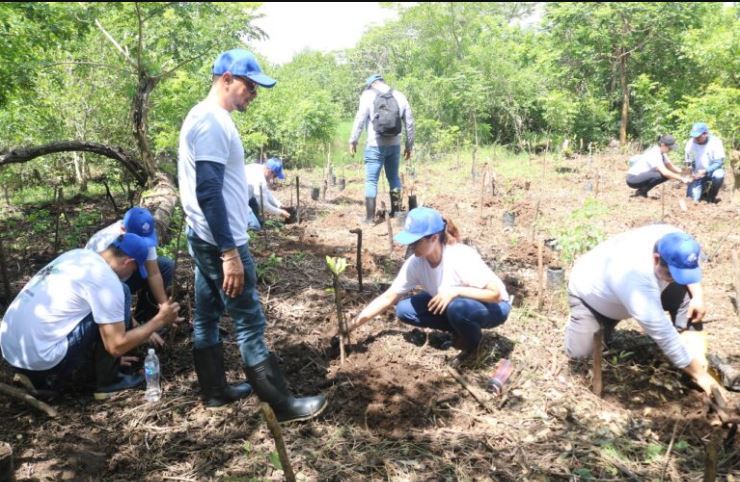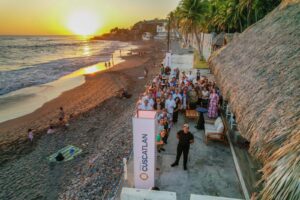
More than 148 people from Barra de Santiago have benefited from income and training. The project strengthens sustainability as an economic and social driver in coastal areas.
FUNDEMAS highlighted the progress made in mangrove restoration in Barra de Santiago, Ahuachapán, thanks to the collaboration of the private sector, international cooperation, and local communities. Since 2018, the leadership of Davivienda El Salvador has been instrumental in rehabilitating more than 8 hectares in this Ramsar ecosystem, considered strategic for artisanal fishing and the development of green jobs.

The initiative has not only promoted environmental conservation but has also generated a direct economic impact: 148 people from the local community, including 84 women, have access to temporary jobs, training, and new sources of income.
Among the most notable results are the planting of 26,200 seedlings in the area and 59,800 in a nursery, in addition to the development of more than 1,800 linear meters of ecosystem. These initiatives have enabled collaboration between companies such as DHL, Movistar, Philip Morris El Salvador, GIZ, and Asociación de Desarrollo Comunal Mujeres de Barra de Santiago (AMBAS).

“Restoring mangroves means protecting communities and preparing the country for a resilient future”, said Maythé Cornejo, Environment manager at FUNDEMAS.
The model demonstrates how public-private partnerships can generate shared value by strengthening environmental conservation, boosting local economies, and opening development opportunities in rural areas.







